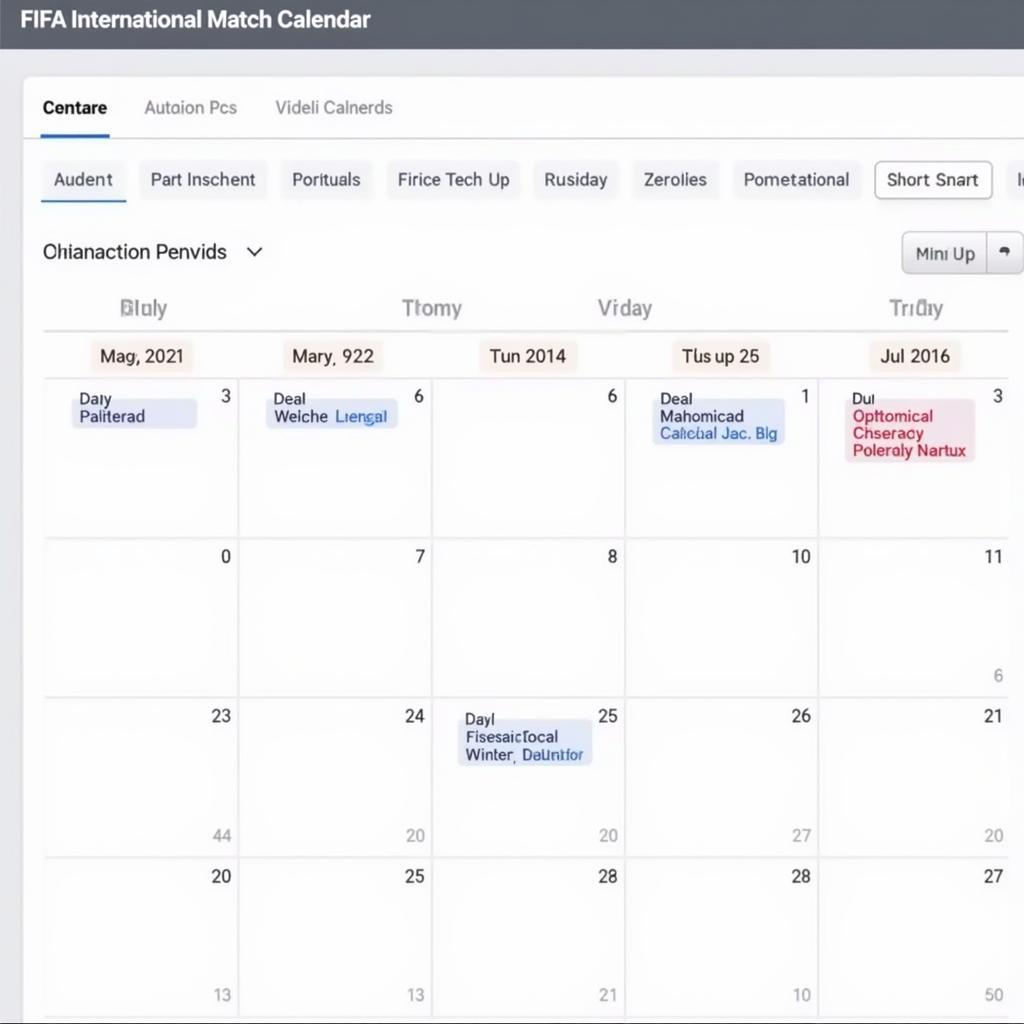Navigating the Demands of International Duty: When Players Must Join Their National Teams
October 27, 2024For a professional footballer, representing your country on the international stage is an immense honour. It’s a chance to test yourself against the best in the world, compete for prestigious trophies, and inspire a nation with your performances. However, the demands of international duty can also place a significant strain on players, particularly those who are regulars for both their clubs and national teams. This article delves into the intricacies of when players are obligated to join their national teams, exploring the rules, regulations, and potential conflicts that can arise.
FIFA International Match Calendar: The Foundation of Release Requirements
The cornerstone of player release for international duty is the FIFA International Match Calendar. This meticulously crafted schedule designates specific periods throughout the year allocated for international fixtures, ranging from friendly matches to major tournaments like the FIFA World Cup and continental championships. During these designated windows, clubs are obligated to release their players to their respective national teams, provided they are named in the official squad list.
Mandatory vs. Optional Release Periods: Understanding the Distinction
It’s crucial to differentiate between mandatory and optional release periods within the FIFA International Match Calendar.
- Mandatory periods: These windows hold paramount importance as they are dedicated to official competitions sanctioned by FIFA. Refusal to release a player during these periods can lead to sanctions from FIFA, highlighting the seriousness of these obligations.
- Optional periods: As the name suggests, these periods are less stringent, typically involving friendly matches or regional tournaments not organized directly by FIFA. While clubs are still expected to cooperate, there might be more room for negotiation in exceptional circumstances.
 FIFA International Match Calendar displaying mandatory and optional release dates.
FIFA International Match Calendar displaying mandatory and optional release dates.
The Complexities of Club vs. Country: Potential Conflicts and Resolutions
While the FIFA International Match Calendar aims to provide clarity, the intersection of club and international football inevitably leads to complexities and potential conflicts.
Injury Concerns and Player Workload: A Balancing Act
One of the most common flashpoints arises when a player’s fitness is in question. Clubs invest heavily in their players and understandably prioritize their well-being. If a player is carrying a knock or recovering from a demanding schedule, clubs may be reluctant to release them, fearing further injury or burnout.
In such situations, open communication and collaboration between clubs and national team medical staff are paramount. Sharing medical records, assessments, and tailored training plans can help mitigate risks and find mutually agreeable solutions.
Club Competitions and Crucial Matches: Finding Common Ground
Another layer of complexity emerges when international breaks coincide with crucial club fixtures, such as league title deciders or cup finals. Clubs naturally want their best players available for these pivotal games, potentially leading to friction with national team obligations.
FIFA regulations offer some flexibility in these scenarios, allowing clubs to petition for a player’s delayed release or early return. The success of such petitions hinges on factors like the significance of the club match, the player’s importance to both teams, and the potential for alternative arrangements.
The Importance of Open Dialogue and Mutual Respect
Ultimately, navigating the demands of international duty requires a delicate balance of understanding, communication, and mutual respect between all stakeholders. Players are often caught in the middle, driven by their passion for both club and country.
Open and honest dialogue between players, clubs, and national team management is crucial to finding solutions that prioritize player well-being while upholding the integrity of both club and international competitions.
Conclusion: A Shared Responsibility for the Beautiful Game
The release of players for international duty is an integral aspect of the global football ecosystem. While rules and regulations provide a framework, it’s the shared responsibility of clubs, national teams, and players themselves to navigate the complexities with a focus on transparency, collaboration, and respect for the beautiful game we all cherish.